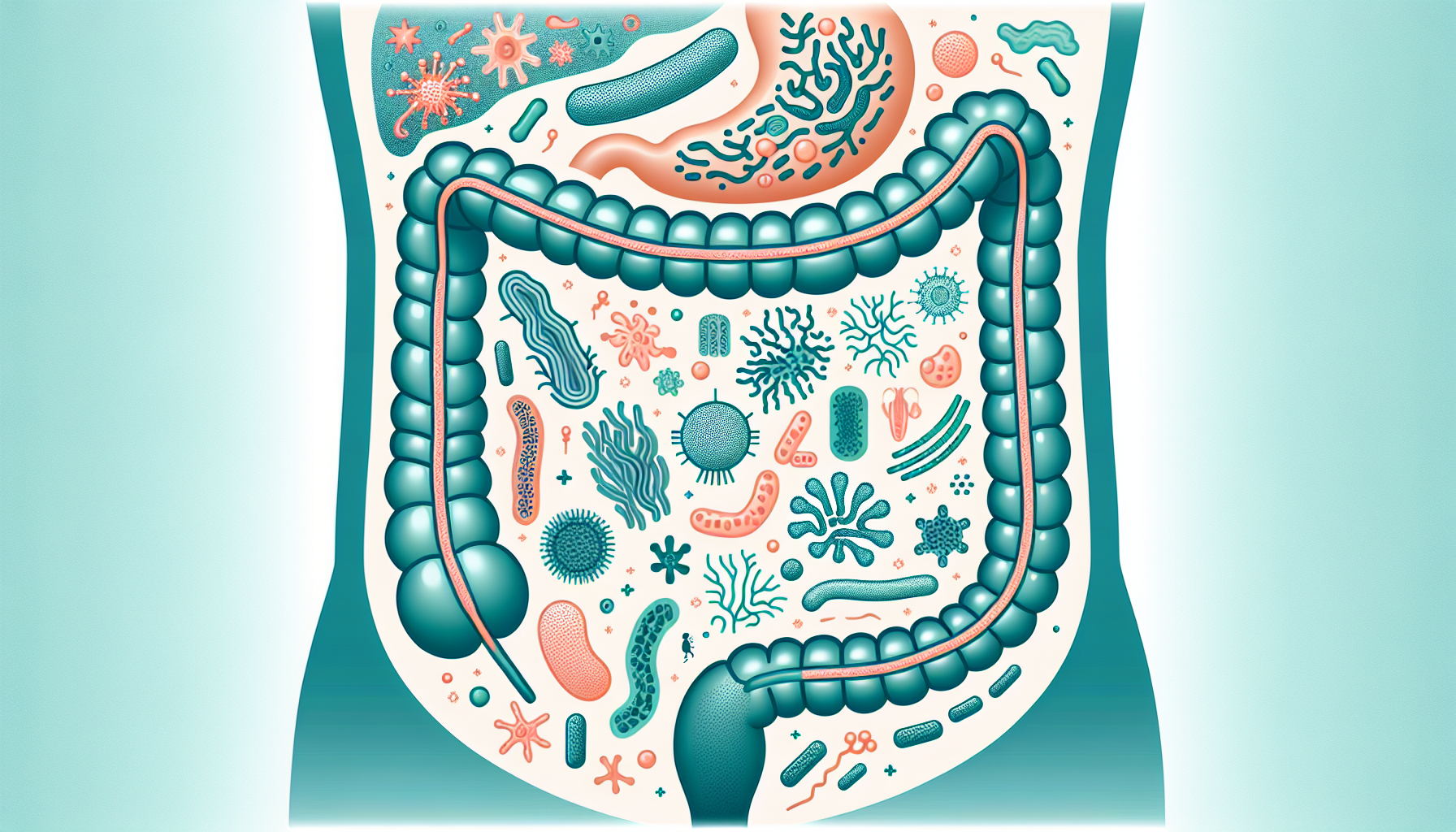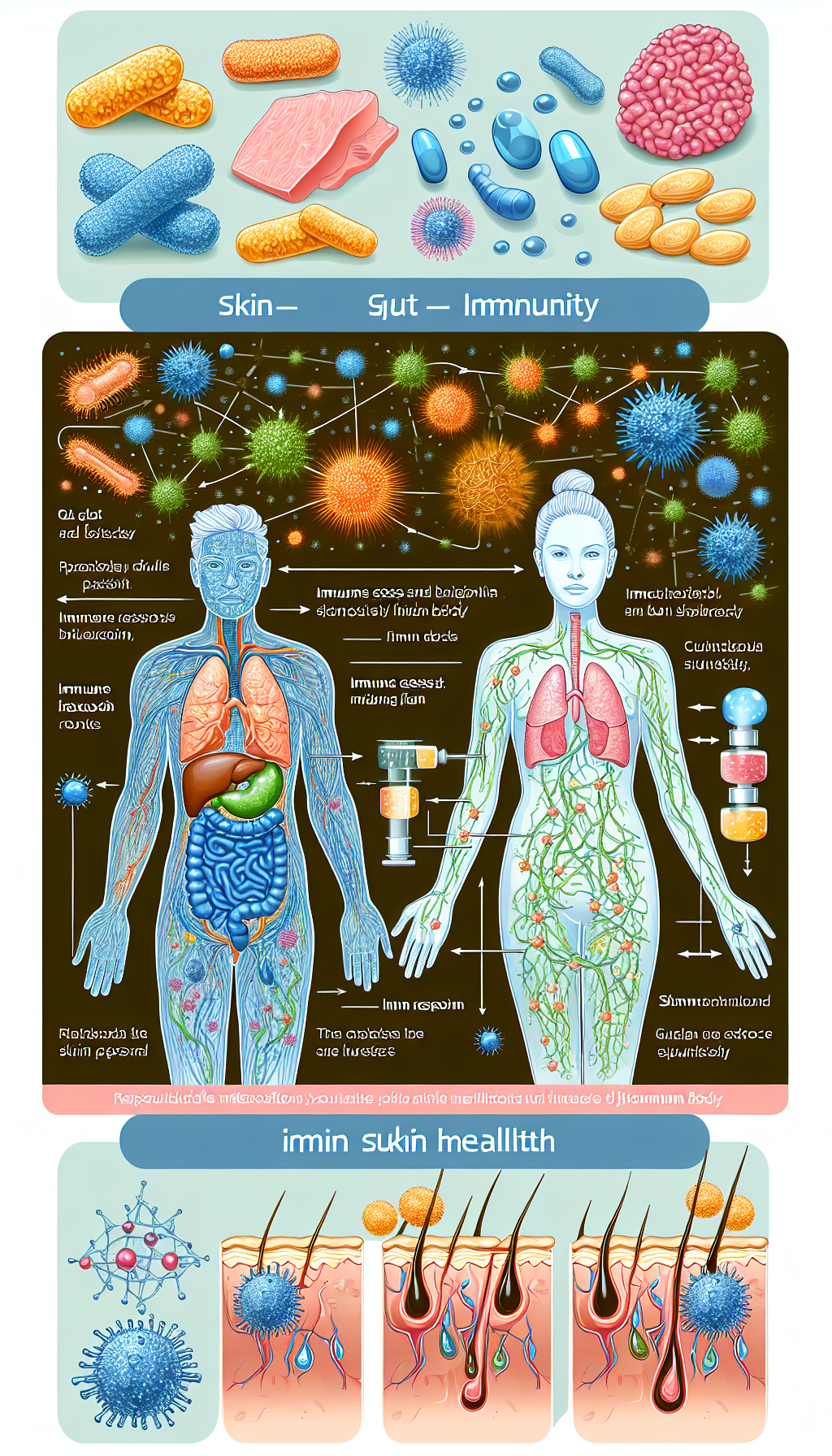The human gut is a complex and vibrant ecosystem, home to trillions of microorganisms that play a crucial role in our overall health. The gut flora, or microbiome, is composed of bacteria, viruses, fungi, and other microscopic living things that have evolved in a symbiotic relationship with the human body. This article delves into the intricate relationship between gut flora and immune system health, highlighting the importance of maintaining a balanced microbiome for optimal wellbeing.
The Gut Microbiome: A Foundation for Immunity
The immune system is our body’s defense against infectious organisms and other invaders. A significant portion of this system is located in the gut, where it must distinguish between beneficial and harmful agents. The gut flora is instrumental in this process, as it helps educate and regulate the immune system’s responses. A diverse and balanced gut microbiome can enhance immune function, while imbalances may lead to immune dysregulation and disease.
Research has shown that the gut microbiota interacts with the gut-associated lymphoid tissue (GALT), the largest immune organ in the body, influencing the development and function of immune cells. Probiotic bacteria, such as Lactobacillus and Bifidobacterium, are particularly important for nurturing the immune system, stimulating the production of antibodies, and modulating inflammatory responses.
For those interested in exploring the broader implications of a healthy gut on overall wellness, Avix Health’s extensive resources on Digestive Health offer valuable insights.
Microbiome and Disease: The Immune Connection
An imbalance in the gut flora, known as dysbiosis, can have far-reaching effects on the immune system. Studies have linked dysbiosis to various health issues, including autoimmune diseases, allergies, and even mental health disorders. The mechanisms behind these connections are complex and involve the microbiome’s role in immune tolerance, pathogen defense, and the production of anti-inflammatory compounds.
One of the ways gut bacteria influence health is through the production of short-chain fatty acids (SCFAs), which are metabolites that have a potent effect on the immune system. SCFAs, such as butyrate, propionate, and acetate, are produced when gut bacteria ferment dietary fiber. They play a critical role in maintaining the integrity of the gut barrier, modulating inflammation, and regulating immune cell activity.
To gain a deeper understanding of how dietary choices affect the microbiome and immune health, readers may find the article on How Dietary Fibers Affect Intestinal Barrier Function particularly informative.
Strengthening Immunity Through Gut Health
Optimizing gut health is a proactive way to support the immune system. This includes consuming a diverse range of nutrients, prebiotics, and probiotics to nurture a healthy microbiome. A diet rich in fruits, vegetables, whole grains, and fermented foods can provide the necessary substrates for beneficial bacteria to thrive.
Probiotic supplementation is another avenue to enhance gut flora composition. Recent advancements in this field have led to the development of targeted probiotic strains that can address specific health concerns. For more insights into these developments, the article on Advancements in Probiotic Supplementation for Gut Health Repair offers a wealth of information.
Additionally, lifestyle factors such as stress management, regular exercise, and adequate sleep are crucial for maintaining a balanced microbiome and a robust immune system.
External Resources Supporting Gut Health for Immune Function
The scientific community has made significant strides in understanding the impact of the microbiome on health. Here are some niche resources that delve into the specifics of how gut health influences immunity:
- A study on the role of gut microbiota in immune homeostasis and autoimmunity: Gut Microbiota in Autoimmunity and Inflammation
- Research on the immunomodulatory effects of probiotics: Probiotics and Immune Health
- An article on the interaction between dietary fiber, gut microbiota, and the immune system: Dietary Fiber and Gut Microbiota in Immune Response
- Insights into the role of short-chain fatty acids in immune regulation: SCFAs: Metabolites That Affect Immune Responses
The Skin-Gut-Immunity Axis
Interestingly, the health of the gut microbiome is not only pivotal for the immune system but also for the skin. The skin, being the largest organ and an immune barrier itself, reflects internal imbalances, including those in the gut. Conditions such as acne, eczema, and psoriasis have been linked to microbial dysbiosis. The Avix Health article on The Link Between Gut Health and Skin Appearance explores this connection in detail.
The Future of Gut Health and Immunity
As research continues to uncover the complexities of the gut-immune axis, new therapeutic strategies are emerging. Fecal microbiota transplantation, personalized probiotic treatments, and microbiome-based diagnostics are just some of the innovative approaches being explored.
The interplay between gut flora and immune health is a testament to the body’s interconnected nature. By fostering a healthy microbiome through diet, lifestyle, and possibly supplementation, we can support our immune system’s ability to protect and heal, paving the way for a healthier, more vibrant life.



